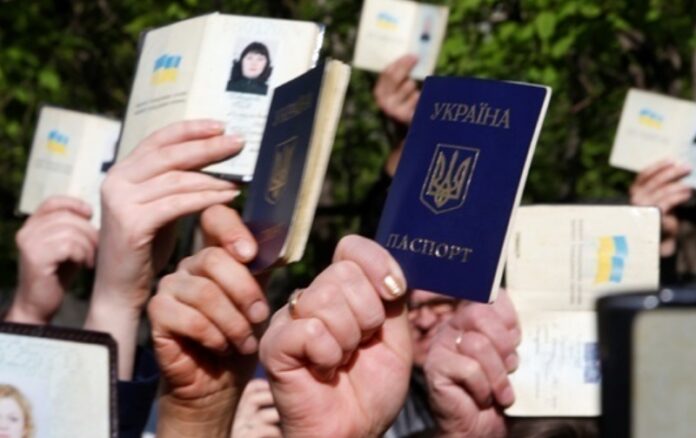Recently, the Minister of Foreign Affairs of Ukraine Dmytro Kuleba announced the need to introduce multiple citizenship in Ukraine. Like, we should not be afraid that Ukrainians will receive citizenship of other countries of the world. However, there will be one restriction - Ukraine will not allow double citizenship with Russia and other countries that support its aggressive war against Ukrainians.
The minister voiced is not a new idea, it was already discussed, and, in fact, in such a perspective: to allow double citizenship, especially with the countries of the European Union or others, where many Ukrainians are, but not to spread it to the citizenship of the aggressor country, that is, to Russia. In principle, it is a rather pragmatic solution. After all, dual citizenship actually exists in many countries of the world, it is a normal phenomenon.
The idea of multiple citizenship is a well -founded proposal
What voiced the Kuleb is basic. However, even before the war, we (the Democratic Initiatives Foundation named after I. Kucheriv) conducted polls that showed that most Ukrainians were against multiple citizenship. The fact is that it was regarded as a factor that other countries would have the opportunity to interfere with Ukraine. But indeed, we are saying that many people have been abroad - in many countries there is a large Ukrainian diaspora, many Ukrainians have a connection with Poland, Romania and so on. And a model that prohibits dual citizenship with Russia exists, for example, in Lithuania. Therefore, I think the idea of multiple citizenship is a well -founded proposal.
Now Mr. Kuleba is talking about people who were forced to go to other countries. Obviously, multiple citizenship simplifies the stay of Ukrainians in these countries, they will be able to become full citizens, that is, it facilitates their lives. But how all this should work should be commented by lawyers and legislators. In the end, the bill can be corrected and more about it.
Of course, there are nuances that you have to think.
For example, there are questions about representatives of the historical diaspora, that is, people who live in other countries by generations and are citizens of the United States, Canada, the United Kingdom and more. Can they get Ukrainian citizenship? It's only about Ukrainians who live in Ukraine and can obtain citizenship of other countries?
We need to understand that not all countries will be willing to give their passports
Or another example of a question that needs discussion and resolution. It's about how it will happen to each individual country? For example, if we are talking about Romania or - especially - Hungary (since we know that they want to use this factor to put some pressure on Ukraine and to promote their interests in Transcarpathia). Hungary, honestly, generally takes a strange position on Russian aggression. So here you need to think about how to do it.
Another point - we need to understand that not all countries will be willing to distribute their passports, say, Germany. Simplified citizenship procedures are likely to be possible in Poland, Hungary, Romania. And when we talk about Western European countries, they have their own, quite rigid citizenship policy. Therefore, there will be their procedures.
You also need to answer the questions, let's say, will a person with foreign citizenship occupy public positions in Ukraine? Is it possible to offer such a minister, for example? The legislator must answer. After all, a similar problem has arisen earlier. We remember that during Poroshenko, when we invited foreigners to office in our government, the interpretation was such that they were granted Ukrainian citizenship, and they should give up the citizenship of their countries during the year. In some cases, of course, this was not done ...
Earlier we interpreted this “only citizenship” just as a ban on double
Another question mark is that the Constitution of Ukraine refers to "single citizenship". When we say "single citizenship" (we use the term not "one" but "one"), it is understood that there is no citizenship of some individual regions or regions. At the beginning of Ukraine's independence, this specifically emphasized that no one would have the desire to preach federalization and with individual citizenship.
As far as I can judge, there is actually a direct ban on dual citizenship here. But this issue requires clarification and clarification. Earlier, we interpreted this "single citizenship" as a ban on double. Why we did, in principle, of course: Russia has passed its passports fervently. Therefore, the question of how to interpret "only citizenship" now.
However, in general, I do not see much obstacle to the adoption of such a bill by the Verkhovna Rada. But its support depends on how this document will be prescribed and many details in it.
Alexei Garan, Professor of Comparative Political Science, Kyiv-Mohyla Academy, Scientific Director of the Democratic Initiatives Foundation. I. Kucheriv


